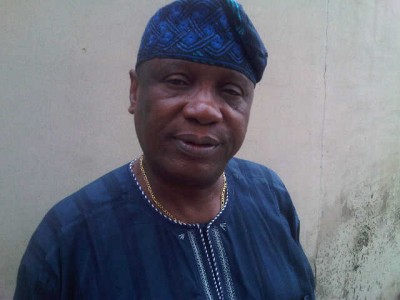
ONE of the most discussed topics during the first term of President Muhammadu Buhari is his special relationship with the Kanuris. And to fuel the speculations was his recent inauguration of the North-East Development Commission, the first regional commission inaugurated by the President. He appointed his friend and course mate, Major General (retd) Paul Chabri Tarfa (78), from Garkida in Adamawa State as chairman.
Major General Tarfa had his military service between 1962 and 1988, and once served as military governor of Oyo State from July 1978 to October 1979. He also served as Commandant, Nigerian Defence Academy between 1984 and 1985. Since he was appointed military governor of North-East and served between July 1975 and March 1976, President Buhari has never hidden his undying relationship with the Kanuris. This is understandable.
Although his father, Hardo Adamu, was a Fulani from Daura, his mother, Zulaihat was a Kanuri from Kukawa in Borno State. Buhari was the thirteenth child of his mother and like many children, he loved his mother dearly. Those close to the president said he took on the height of his mother. Kukawa is a town and local government area in the North-East. The town is in Bornu State close to Lake Chad.
The town was founded in 1814 as capital of the Kanem-Bornu Empire by the Muslim scholar and warlord Muhammad al-Amin al-Kanemi after the fall of the previous capital, Ngazargamu, conquered in 1808 in the Fulani War. The town had great strategic importance, being one of the southern terminals of trans-Saharan trade routes to Tripoli.
The town was visited by German explorer Heinrich Barth in 1851 who arrived from Tripoli seeking to open trade with Europe and explore Africa, and again in 1892 by the French explorer, Parfait-Louis Monteil, who was checking the borders between areas of West Africa assigned to the French and the British.
At present prominent Kanuris very close to the President are his chief of staff, Mallam Abba Kyari, a former banker; the chief of army staff, Lt. General Tukur Yusuf Burutai; national security adviser, Major General (retd.) Mohammed Babagana Monguno; the acting chairman of Economic and Financial Crimes Commission, Ibrahim Magu, and many directors general, special advisers and special assistants. There is also Alhaji Babagana Kingibe, who although is not holding any portfolio but whom I understand is close to the President and who is very powerful in the villa. Alhaji Kingibe was the former Secretary to the Government of the Federation.
The Kanuris are not new to government. One of them, General Sani Abacha (September 20, 1943 – June 8, 1998) was Head of State between November 17, 1993 and June 8, 1998. Although General Sani Abacha grew up in Kano and was also buried in Kano, he was a Kanuri man. In the First Republic, four prominent Kanuris played crucial roles. They are Sir Kashim Ibrahim, Alhaji Ibrahim Waziri, Alhaji Shettima Monguno and Alhaji Zanna Bukar Suloma Dipcharima.
According to a publication, Makers Of Modern Africa, published by Raph Uwechue, Alhaji Dipcharima (1917-1969) was a member of the Nigerian delegation to the London Constitutional Conference held at the Lancaster House between May 23 and June 26, 1957. He later became Minister of Health and Minister for Commerce, Industries and Transport under the then Prime Minister, Sir Abubakar Tafawa Balewa.
Alhaji Dipcharima won a seat in the Federal House of Representatives in Lagos in 1954, was made Parliamentary Secretary in the Ministry of Transport. In 1957, he became Minister of State without Portfolio and later Minister of Commerce and Industry, before taking the portfolio of Transport in 1964. Dipcharima was holding this office when the federal civilian government was overthrown in the military coup of January 15, 1966. He made the headlines when, in the absence of the abducted Prime Minister, Sir Abubakar Tafawa Balewa, he presided over the Cabinet that handed over power to the armed forces. Dipcharima died in an air accident in 1969.
In the same publication it was reported that, Sir Kashim Ibrahim (1910-1990) was appointed the first Nigerian Governor of the Northern Region. He was knighted by the Queen of England in the same year. Though greatly respected, he had no real power in that post in the last years of Sir Ahmadu Bello’s rule over the Northern Region. When that rule was ended with the killing of the Premier in the first coup of 1966, Sir Kashim was briefly arrested. On his release, he was appointed an adviser to the military governor of the Region, which however was soon afterwards abolished with the creation of states in 1967 and 1968.
END

Be the first to comment